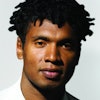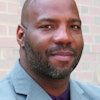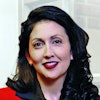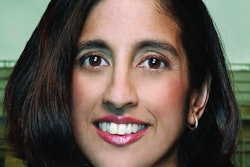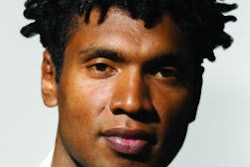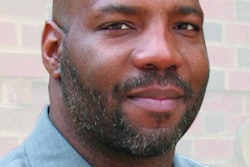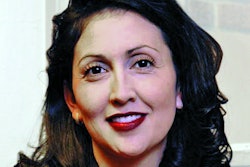Most people would marvel at the 1970s television show “The Bionic Woman” and just hope to emulate the technologically advanced heroine.
Not a young Dr. Ayanna MacCalla Howard. “I said, ‘I can build The Bionic Woman,’” she says with a laugh.
But it formed the foundation for a now stellar career in engineering and robotics for Howard, an associate professor in the Georgia Institute of Technology’s School of Electrical and Computer Engineering.
Howard focuses on the area of humanized intelligence and robotics. According to her Georgia Tech biography, this area of research centers on the process of embedding human cognitive capability into the control path of autonomous systems. She says this doesn’t mean building robots that will become human.
“I’m designing robotic technology — not to replace humans or take over the world — but really to meet unmet needs,” she says. “I just want to build the ultimate human companion. Something that can assist us at home or in space — an intelligent counterpart to assist us in anything we want to do.”
Howard, who grew up in Southern California, is a graduate of Brown University and the University of Southern California, where she earned her master’s and doctoral degrees in electrical engineering.
Up until 2005, Howard worked at NASA’s Jet Propulsion Laboratory, most recently as a senior robotics researcher. She was integral in research and design of autonomy software that is based on human cognition for landing a robotic spacecraft safely on a remote surface, formation of multiple spacecrafts and safe navigation of a planetary rover.
At NASA she was responsible for state-ofthe- art research development of an artificial intelligence toolkit for interactive learning. Howard was also deputy manager of the Strategic University Partnership Office, where she managed science and technology research liaisons with leading universities.
Howard has been greatly lauded for her work. She was named to Technology Review’s “Top 100 Young Innovators of the Year in 2003”; in 2004 was chosen Engineer of the Year by the Los Angeles Council of Engineers and Scientists and named the 2004 Allstate Insurance Distinguished Honoree for Achievement in Science; and won a California Women in Business Award for Science in Technology and an Institute of Electrical and Electronics Engineers Early Career Award in Robotics and Automation in 2005.
Currently the director of Georgia Tech’s Human-Automation Systems Laboratory, Howard was the subject of a 2004 Time magazine story titled “Innovators/Artificial Intelligence: Forging the Future.” Her former NASA colleague, Dr. Edward Tunstel, who is now the space robotics lead researcher in the Johns Hopkins University Applied Physics Laboratory, says Howard’s focus on success is what has set her apart in their field.
“I would say it is her drive and her ambition,” Tunstel says. “She’s a lot more energetic than many of our peers when it comes down to what we do in developing new technology for robotic systems. You’ve got what you call your garden variety researcher and then you have a few people like Ayanna. She has a vigorous drive to propose new technology, to get it funded and to get it implemented.”
Howard says a healthy dose of ego has also been essential for a Black woman in the robotics field. “You have a lot of people telling you that you can’t do it,” she says. “You have to have a lot of self-confidence to do this stuff, even when people tell you that you can’t.”
Howard, who turns 36 later this month, also keeps busy outside the laboratory. She is a single mother of a son and is an avid traveler who loves to go to jazz clubs in foreign lands. “That’s my thing — I’m going to find a jazz club,” Howard says. “Anytime I go someplace, I try to find a jazz club, like in Germany or Italy. It’s a quirky hobby.”
That’s almost as quirky as wanting to build the bionic woman.
“I’m tickled by the fact that I get paid to play with toys,” Howard says. “I just do what I love and strive to be better than myself. I think that’s why people are drawn to the magic of what I do. I don’t live for the career, it lives for me.”
Title: Associate Professor, Electical Engineernig and Director of the Human-Automation Systems Laboratory, Georgia Institute of Technology
Education: Ph.D., Electrical Engineering, M.S., Electrical Engineering, the University of Southern California; B.S., Engineering, Brown University


